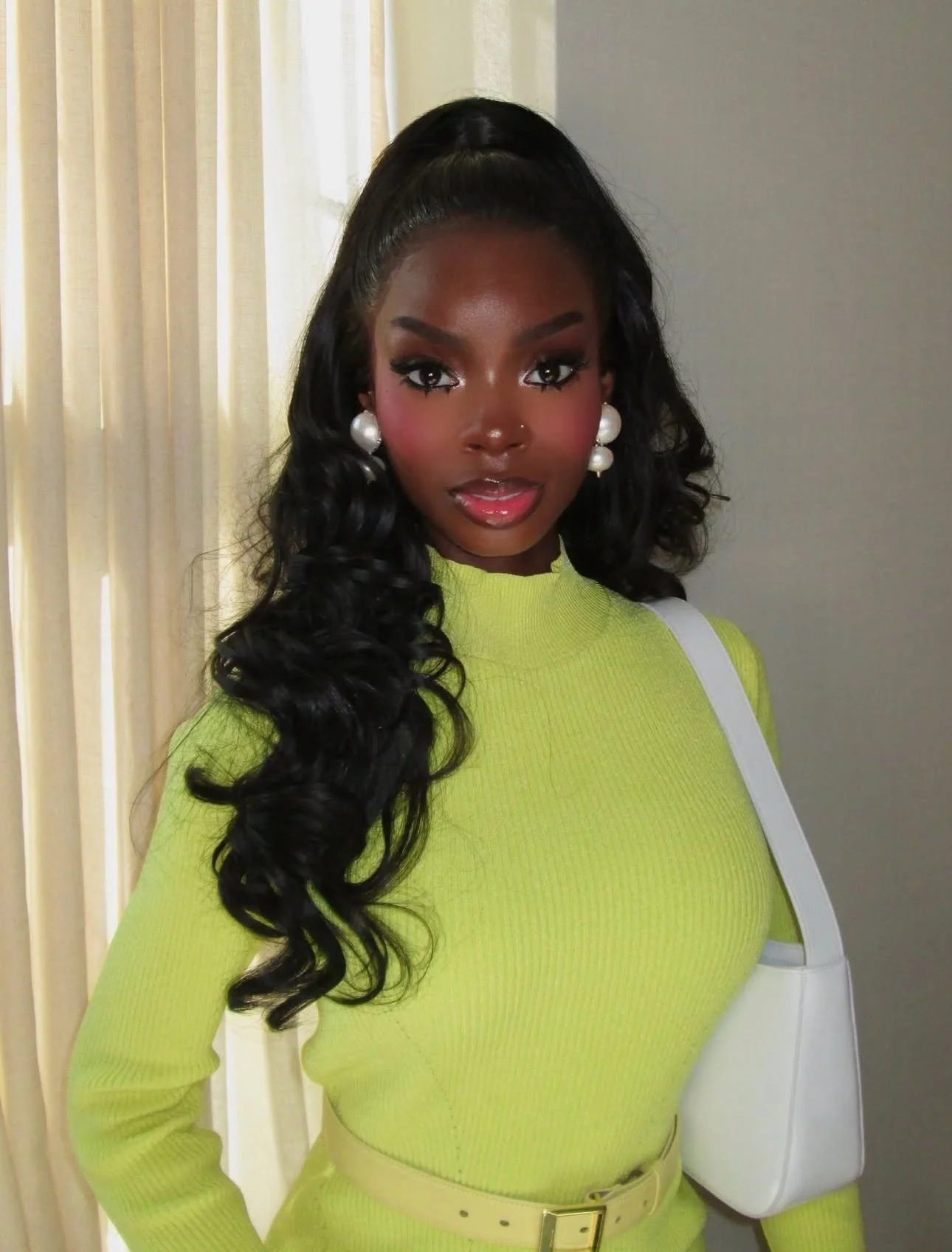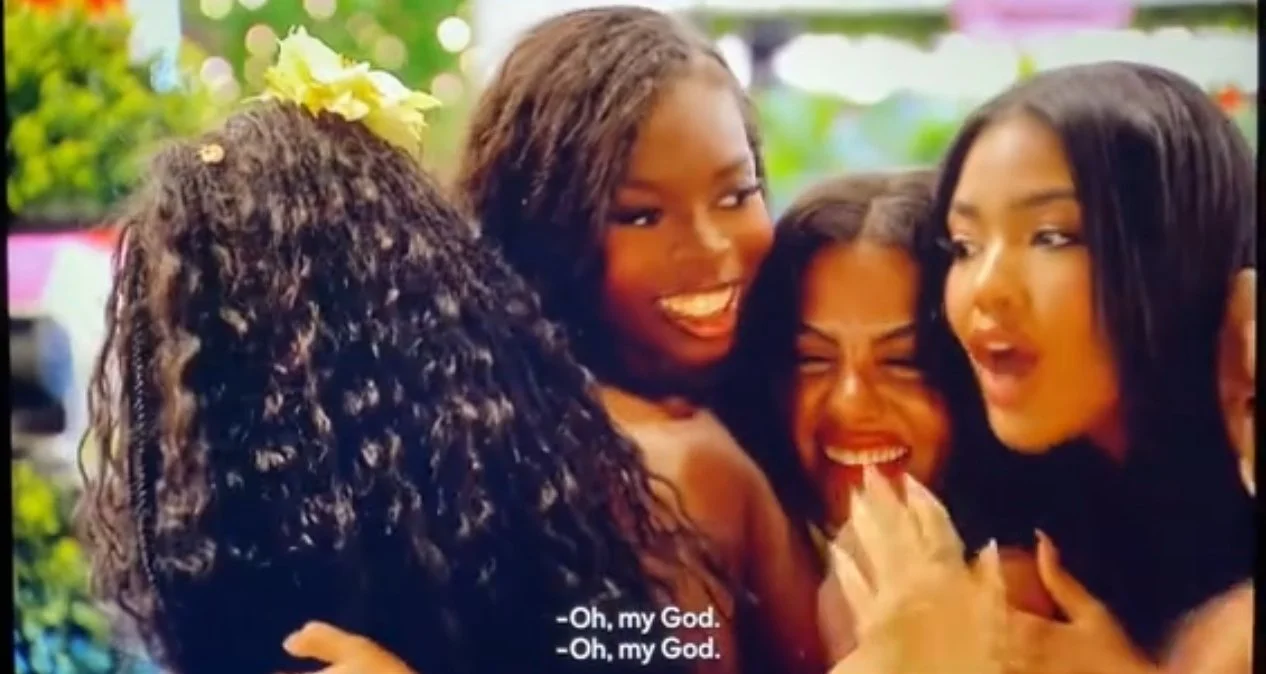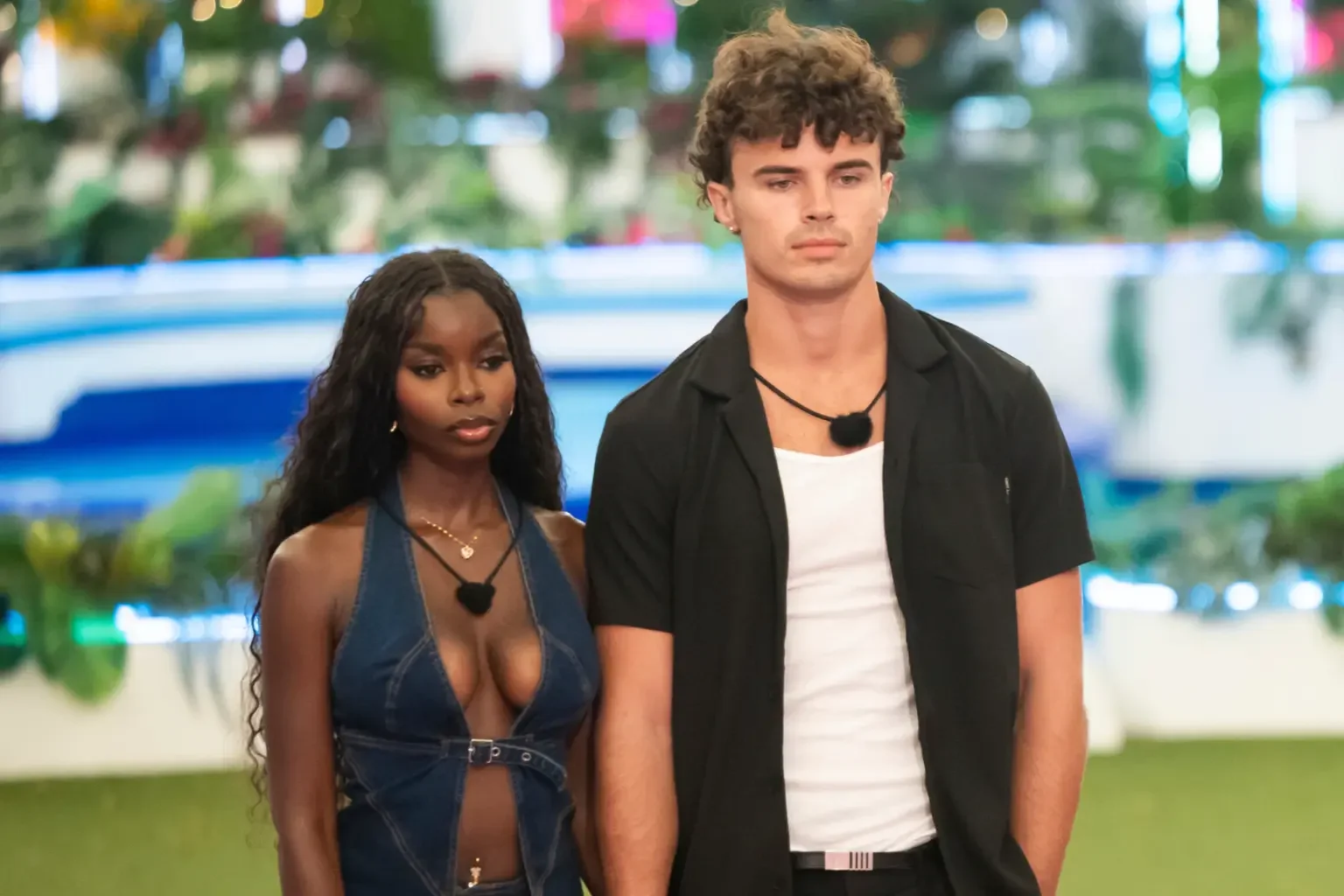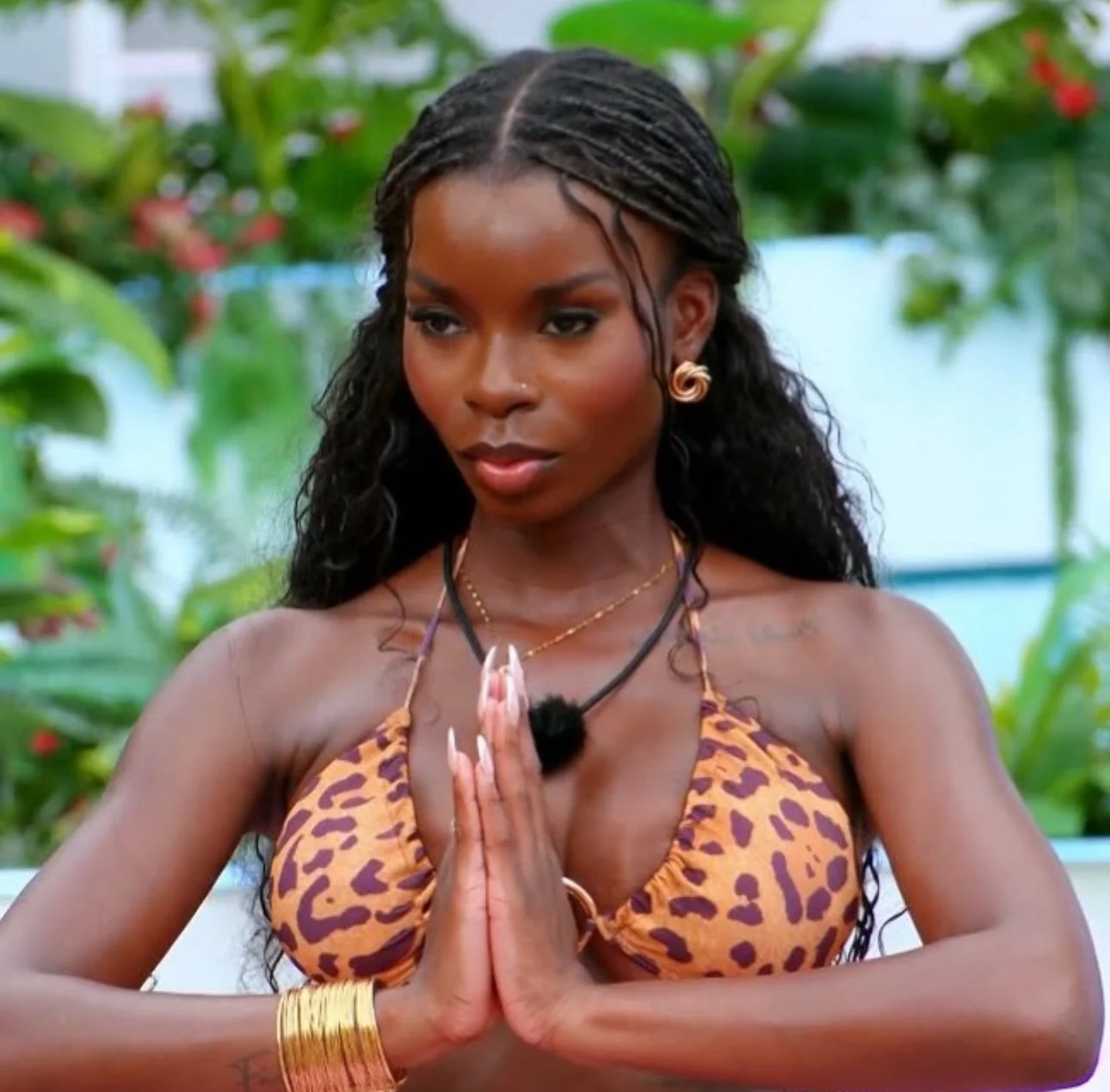SHE IS THE MOMENT: Olandria Carthen’s Journey on Love Island USA and the Reality of Being a Black Woman in Love and Media
“The world always tries to label us as ‘angry Black women.’ They use a moment of weakness and make that one specific time our whole character.”
When Olandria Carthen walked into the Love Island USA villa, she didn’t just enter a dating show, she entered a battleground of perception. A proud Tuskegee University alum, radiant in beauty and rooted in self-awareness, she brought with her a presence that couldn’t be ignored. From her flawless style to her grounded energy, Olandria was magnetic. But being a dark-skinned Black woman on a reality show built around desirability meant her journey would be layered with complexity, scrutiny, and emotional labor. She didn’t just come to find love. She came to be seen, and in doing so, she exposed the ways Black women are often misread, mistreated, and misunderstood in spaces that weren’t designed with us in mind.
The Tropes That Trap Us
Reality television has a long history of flattening Black women into caricatures. We’re either the angry one, the loud one, the hypersexual one, or the one who’s “too strong to cry.” These tropes aren’t just lazy, they’re violent. They erase our softness, our nuance, our humanity. And when we show up with clarity, boundaries, and emotional intelligence, we’re punished for it.
Olandria was labeled a “bully” by online audiences. Not because she yelled. Not because she belittled. But because she refused to be disrespected. Because she spoke with conviction. Because she held people accountable. And in a genre that thrives on conflict, her assertiveness was weaponized. This is the burden of representation. Black women are expected to be strong, nurturing, and endlessly forgiving, but the moment we assert ourselves, we’re cast as combative. The editing room becomes a weapon. Moments of vulnerability are cut. Context is erased. And what’s left is a caricature, a flattened version of a woman who is, in reality, layered, loving, and luminous.
The Emotional Labor of Being “The Strong One”
Throughout her time in the villa, Olandria was the one people turned to. She was the sounding board, the truth-teller, the emotional anchor. She held space for others even when she wasn’t being held herself. Chelley Bissainthe, another Black woman in the villa, later shared that “everyone who was in that villa will tell you that they could always come to us for the best advice… we bring everybody a peace of mind.”
But that labor—unpaid, unrecognized, and often unreciprocated, rarely makes the final cut. Instead, audiences are fed a narrative that erases care and amplifies conflict. Olandria didn’t just survive the villa, she carried it and she did so while navigating the weight of being one of the few dark-skinned Black women in a space that rarely affirms us.
Her Journey to Love: Honesty, Heartbreak, and Healing
Olandria’s romantic arc was layered and deeply human. She spent the majority of the season coupled with Taylor, a connection that, at first, seemed promising. They shared laughs, loyalty, and three weeks of partnership. Behind the scenes, there were quiet conversations and subtle cues that revealed Taylor wasn’t truly the match for her. When Casa Amor arrived, the switch was swift. In just three days, he recoupled with someone new, leaving Olandria confused and hurt, wondering where the connection had gone wrong.
She didn’t ask for perfection. She asked for honesty. And when that honesty came too late, it stung—not just because of the rejection, but because of the emotional labor she had invested in a relationship that wasn’t built on truth.
Even when Jalen entered the villa and expressed interest, Olandria stayed loyal to Taylor. She chose commitment over convenience, hoping that her consistency would be met with clarity. It wasn’t. And once again, she was left to navigate the fallout with dignity and grace.
This moment echoed a painful reality for many Black women: being chosen for stability, not desire. Being tolerated, not treasured. And being expected to stay loyal even when loyalty isn’t returned.
The “Cowboy” Who Chose Her Loudly
Love has a way of circling back..
From the very beginning, there was a spark between Olandria and Nic Vansteenberghe. During the blindfold challenge on Day 2, Nic kissed her ntentionally. He picked her in every group challenge. He expressed interest during Casa Amor, but timing and circumstance kept them apart until fate gave them a second chance.
Both Olandria and Nic were dumped during Casa Amor, a moment that felt like the end, but turned out to be the beginning. They received a text inviting them to return to the villa together. They coupled up, shared a steamy kiss, and began to explore what had always been simmering beneath the surface. Though they initially labeled it as friendship, the connection deepened and a week before the finale, they were brought back together once again. This time, it stuck.
Their bond wasn’t rushed. It was built slowly, intentionally, and with mutual respect. They earned second place in the finale, but more importantly, they earned each other. Nic didn’t just choose Olandria, he chose her loudly. He defended her against online hate. He uplifted her in interviews. He made it clear that the noise outside the villa would never shake their bond. “Whatever she wants, I want to make sure happens,” he said during the reunion.
For the first time, our girl was allowed to be soft.
“Usually, I’m a control freak,” she said. “But I let him do everything. The support that I have from this guy is unreal. It allows me to be the soft woman I’ve always wanted to be.”
In a world that demands Black women be strong at all times, Nic gave her permission to rest. To receive. To be held. Maybe he was the cowboy she needed from day one.
Reclaiming Her Voice
Olandria Carthen’s most powerful moment didn’t come during a challenge or a coupling ceremony, it came when the cameras were rolling at the Love Island USA Season 7 reunion, and she chose to speak truth to power. In a room full of people who had shared the villa with her, she stood tall and named the harm. She didn’t sugarcoat it. She didn’t shrink. She said, “Your face was not plastered on George Floyd’s body. Mine was. And I told you that. It was that bad. That shit hurts”.
That moment wasn’t just about her. It was about every Black woman who’s ever been gaslit into silence. Every Black woman who’s been told to “let it go,” “don’t make it about race,” or “be the bigger person.” Olandria refused to let the racism she and Chelley endured be brushed aside. She didn’t just ask for accountability, she demanded it. And in doing so, she modeled what it looks like to protect your peace, your name, and your community.
She had asked for support. She had asked for a public statement to stop the racist attacks. She had asked for allyship, and when it didn’t come, she named that absence. Loudly. Clearly. Unapologetically. Because silence in the face of racism is complicity. Olandria knew that if she didn’t speak up, the narrative would continue to be shaped by those who never had to carry the weight of being a Black woman in the public eye.
Her voice cracked, but her message didn’t. She spoke not just for herself, but for Chelley, for the Black girls watching, for the ones who are always expected to be strong but never allowed to be soft. She reminded the audience—and the world—that Black women are not disposable. That our pain is real. That our dignity is non-negotiable.
This wasn’t just a reunion moment. It was a reclamation. Olandria took bck the narrative that had been twisted by online hate, racial bias, and silence. She reminded everyone that she was not the villain. She was the one who held the villa together. She was the one who gave advice, comfort, and clarity. She was the one who deserved protection, and didn’t get it.
In that moment, she became more than a reality TV contestant. She became a mirror for the culture. A reminder that Black women will always be the backbone of truth, even when the world tries to bend it. She showed us that advocacy doesn’t have to be polished, it just has to be real, and hers was real, raw, and revolutionary.
Her courage to speak truth to power was a masterclass in self-advocacy. She didn’t just defend herself—she defended every Black woman who’s ever been mischaracterized, mislabeled, and misunderstood.
She’s That Girl
Let’s be clear: Olandria Carthen is that girl. A gorgeous, stylish, unapologetic woman with a heart full of wisdom and a mind sharp enough to cut through any nonsense. Her fashion was flawless. Her reads were legendary. And her character? Impeccable. She didn’t just survive the villa, she redefined what it means to thrive in a space not built for her. She showed us that softness is not weakness. That loyalty is not naivety. And that Black women deserve love that doesn’t ask them to shrink, silence, or settle.
Our girl O has so much more in store and we are down for the ride! What’s your favorite moment from the Bama Barbie this summer?







